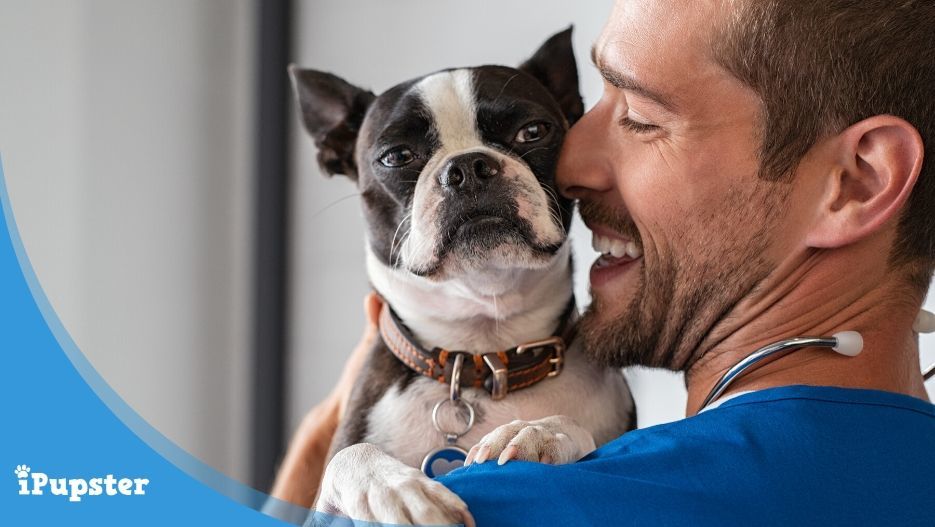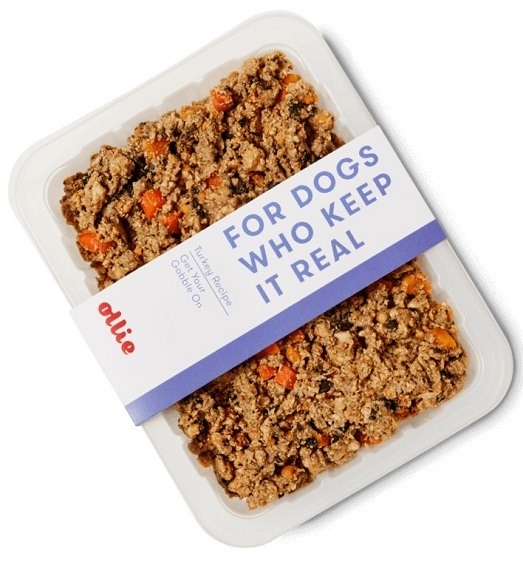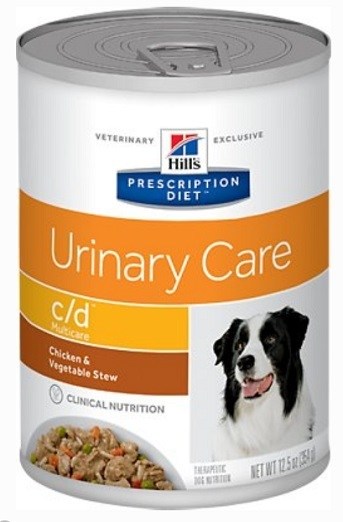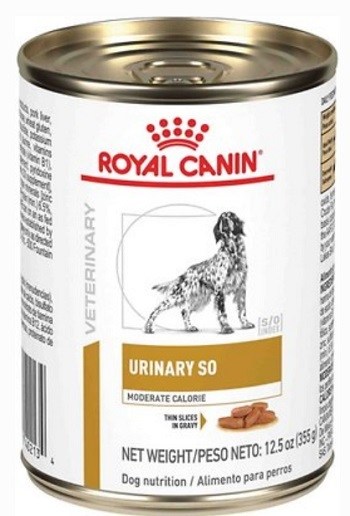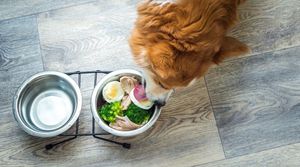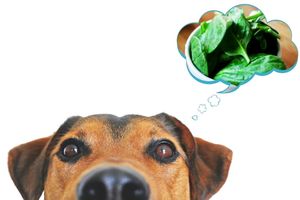The right diet may help prevent bladder stones, and there are specially formulated foods available that are designed to reduce the risk of struvite, calcium oxalate, urate, and cystine crystals forming.
It's not just humans who can develop painful bladder stones, dogs can too. And while much remains to be learned about just how to prevent bladder stones in dogs as effectively as possible the one thing that most experts agree on is that the food they eat is a factor.
But just what causes bladder stones in dogs and which foods are recommended?
These issues - and more- are what we are going to take a deep dive look at here.
Keep reading to also see our recommendations for the top 10 best dog foods for bladder stones, with options to suit the needs of all dogs.
Key Considerations when Buying Dog Food for Urinary Health
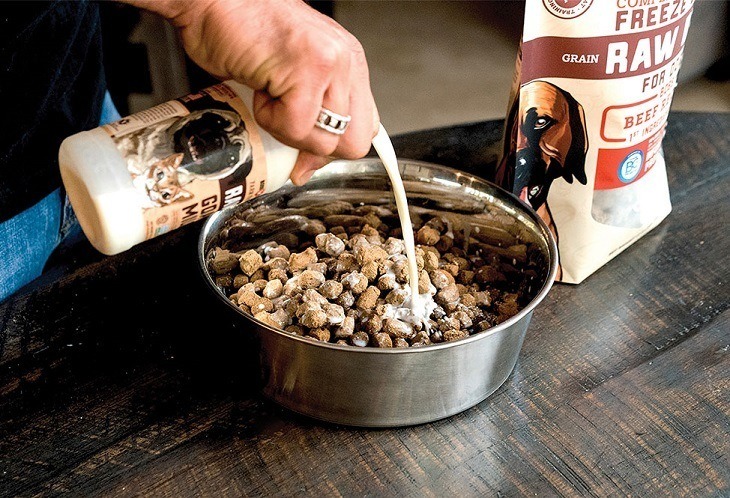
With so many options becoming available, and so much potentially riding on your choices in terms of his health and comfort, learning how to choose the best dog food for bladder stones can be a daunting prospect, but if he is prone to them, it's a must.
When you are trying to make an informed decision about the best food to help with bladder stones there are certain things to keep in mind as any good food needs to focus on two primary goals; diluting urine in order to increase its output and at the same time to avoid feeding your pup any more of the ingredients that are believed to cause, and even make up, bladder stones.
If your dog has already been diagnosed with bladder stones your vet may make a specific recommendation that he follow a therapeutic diet and you buy what is essentially a 'prescription' dog food.
However, if you are looking for a way to aid with bladder stones in general, many of the foods found at standard pet food can be an excellent option, as long as you keep all the following in mind.
Higher Moisture Content
As mentioned, one of the primary goals when treating, and preventing, bladder stones in dogs is to increase urine output, something that can be aided by feeding your pup a dog food with a higher moisture content.
Essentially that means if your pup is used to being fed a diet of dry kibble it may be time to consider a canned, semi moist or rehydrated option instead.
Lower Protein Levels
Everyone - dogs, cats and their humans -need some protein in their diet in order to stay healthy. However, there is such a thing as too much of a good thing, and high protein dog foods can lead to the formation of certain types of bladder stones, including two of the most common; urate and cysteine.
Size and Breed
As you shop you will notice that, in general, some dog foods are marked as size specific. This is not just a marketing ploy.
Dogs of different sizes have rather different nutritional needs, and that can even be true of different breeds.
A toy breed, for example, needs far fewer calories - and in some cases vitamins, minerals and protein, then their larger cousins, so this is something to be kept in mind.
Also Related: The 6 best dog foods for small dogs
Natural Ingredients
Experts generally agree these days that the more natural ingredients a dog food has the better.
These are generally easier to digest and there are fewer 'leftovers' for the kidneys and bladder to process.
In addition, dog foods made with more natural ingredients are usually a better choice nutritionally in general, especially for puppies and 'senior' dogs.
It is very important to remember that the kinds of therapeutic dog foods that are designed to help dissolve existing bladder stones in dogs and dog foods that can help prevent their formation are two different things.
If your vet recommends that to treat an existing problem your pup be fed a specific 'prescription' dog food, then that is what he should be given.
What are the Symptoms of Bladder Stones in Dogs?
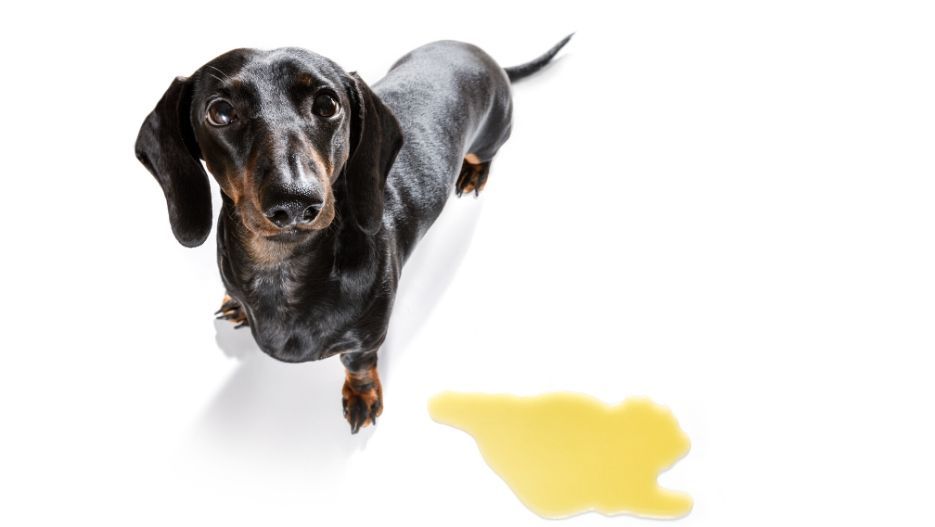
Any human who has ever had to deal with kidney or bladder stones knows that significant pain is one of the most noticeable symptoms experienced, along with decreased urine output.
Your pup has a harder time expressing he is in pain though, but there are several 'tell-tale' signs that he may be suffering from this painful condition, including all the following:
- Decreased urine output
- Difficulty urinating
- Urinary accidents
- Blood in the urine
- Loss of appetite
- Whimpering or restlessness (indicating pain)
What Causes Bladder Stones in Dogs?

There are a number of reasons why your pup might develop bladder stones, and some of them are not completely understood.
In very basic terms bladder stones - in humans and pets - are just that, stones. They are formed from a number of different minerals and can range significantly in size, from tiny masses that cause no symptoms and pass fairly easily to larger stones that often need medical assistance to be expelled.
In some cases bladder stones in canines form as the 'side effect' of certain infections, especially urinary tract infections, but they can also be the result of genetics (more about that in a moment) of dehydration or of an excess of certain minerals in their diet.
Poor kidney function may also be a factor.
In dogs, there is not just one type of bladder stone that may form. Usually a bladder stone will be one of three 'types'; struvite, calcium oxalate, and urate.
Occasionally however other minerals may form stones, including calcium phosphate and silicate. However, only formal testing performed in or by a veterinary lab can determine precisely the nature of urinary stones your dog may have.
Watch Dr. Cathy Becker discuss dog bladder stones.
Most bladder stones form fairly slowly, and so it can be a while before they begin to bother your pup.
It's to prevent this slow formation that many parents are turning to dietary treatments for their fur kid to try to prevent their formation altogether.
Although it is not clear why, case studies and anecdotal evidence from working vets has shown that some dog breeds seem to be more susceptible to developing bladder stones - usually struvite stones - than others than others, including all the following:
- Miniature Schnauzer
- Miniature Poodle
- Bichon Frise
- Cocker Spaniel
Breeds susceptible to developing calcium oxalate stones include the following:
- Miniature and Standard Schnauzer
- Miniature Poodle
- Bichon Frise
- Lhasa Apso
- Yorkshire Terrier
- Shih Tzu
Urate stones, the third most common type are generally found in Dalmations, due to a genetic issue of having a defective hepatic membrane transport of uric acid.
Cystine stones is prevalent in male Dachshunds between the ages of 3 and 6 years old. While silicate stones which has been linked to the consumption of large amounts of corn gluten and soy bean hulls is most common in German Shepherds, Old English Sheepdogs, and Golden and Labrador Retrievers.
For pet parents of pups from these breeds choosing a dog food that can aid with bladder stones can be an especially good idea, even if they have yet to ever have a problem.
How is Canine Bladder Stones Treated?

There are several ways that veterinary professionals make use of to diagnose and treat bladder stones in dogs, usually depending on their severity.
Usually, if bladder stones are suspected your vet will order a urinalysis, to rule out infection, an ultrasound to determine the location and size of any possible stones, and blood and hormone tests to evaluate organ function and general health.
In terms of treatment your vet may recommend any one (or more) of the following:
Surgical Bladder Stone Removal
If a pup is in severe distress, or a stone is particularly large, surgical removal is a quick and effective solution. However, it is not one vets perform lightly, as although a minor procedure any surgery - for humans or pups - entails some risk, especially for those known to have bleeding problems or a sensitivity to anesthesia.
Urohydropropulsion
Urohydropropulsion is the medical term for flushing out bladder stones, usually via a catheter. Some vets may opt to use an instrument called a cystoscope instead.
Dissolution via Ultrasound
Some vets are trained to make use of high-frequency ultrasound waves to break up the bladder stones into much smaller pieces that can be passed in the urine.
Also Read: The best pet insurance providers
Dietary Treatments
To avoid surgery, and especially when the bladder stones are still small your vet may prescribe a special therapeutic. This diet will be specific to the type of bladder stone your pup has, so a lab assessment of the stones will need to be conducted.
While this is a safer and less intrusive alternative to surgery or urohydropropulsion the downside is that dietary intervention can take several weeks to be effective.
The Low-Down on Veterinary Therapeutic Diets

You may be wondering just what a 'prescription' therapeutic diet for bladder stones in dogs actually is and what ingredients it contains.
The fact is that there are a number of them available, and they differ according to what type of bladder stone they are being prescribed to treat.
Somewhat confusingly for pet parents there is some disagreement among veterinary professionals about the use of a 'stone diet' for bladder stones in dogs.
As previously mentioned, therapeutic diets for bladder stones in dogs are specific to the type of stone; calcium oxalate, struvite or urite.
The biggest controversy surrounds the treatment of struvite bladder stones.
It's the opinion of some vets that a therapeutic diet can be used to dissolve struvite bladder stones, but not to prevent them.
Another school of thought feels that a low protein diet of a high quality can do the same thing.
One thing that is agreed on however is that no pup needs to maintain a therapeutic diet forever, unless they are unusually prone to bladder stones, and in that case further diagnostics are called for in any case.
Diets that are classified as therapeutic for bladder stones in dogs undergo significant testing before they are classified as such and while the ingredients vary from brand to brand they are usually of the highest quality available.
The 10 Best Dog Foods for Bladder Stones
Take Note
If your pup is actively treated for bladder stones and your vet recommends he follows a therapeutic diet you should follow that recommendation for as long as your vet suggests.
However, if yours is a pup whose breed is known to often be prone to bladder stones, or you simply want to help prevent a painful problem before it can ever occur there are some excellent dog food options available in standard pet stores and via online pet outlets that it is believed can do just that.
With all this in mind here is a look at our top picks for the best dog food for bladder stones. In addition to our own research, including taste testing with some pups we know, we took into account the opinions and reviews of other pup parents whose furkids have tried these dog foods when creating our list.
So, without further ado let's take a look at some of the best options out there on the market.
1. Earthborn Holistic Weight Control Formula
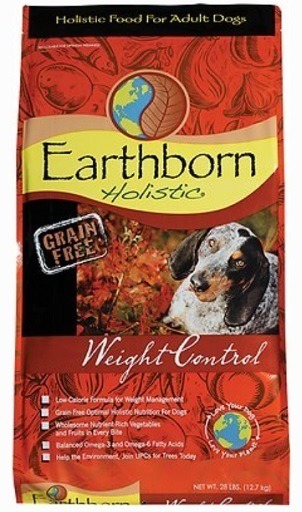
Overall Best Dog Food for Bladder Stones
Earthborn offer a number of different dog food formulas, but as this one contains just the right amount of high quality protein - not too much, not too little - it may be an excellent choice in helping dogs with bladder stones. The fact that the formula is free of artificial ingredients may help too, as that reduces the number of 'stray minerals' that may lead to bladder stone formation.
When choosing a dog food, the more nutritionally balanced it is the better. Earthborn Holistic Weight Control Formula offers a good balance of meat - in this case chicken meal, a condensed form of this lower fat protein - and fruits and vegetables including apples, blueberries, carrots, spinach and cranberries.
This formula is grain free, a plus for some dogs who may be sensitive to grains, and its ingredients are lower in calories in general. Being overweight can cause all kinds of health problems as well as impact their quality of life in general.
- Pros: Great, well balanced formula with just the right amount of high quality protein, formula is all natural. This is a holistic dog food designed to provide balanced nutrition without adding too many calories.
- Cons: Is a little more expensive than some of the other dog food choices on this list.
2. Eagle Pack Reduced Fat Adult Dry Dog Food
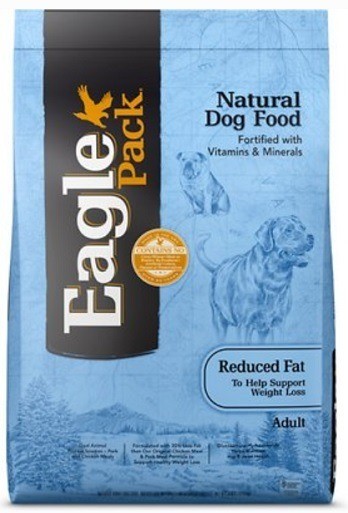
Most Affordable Food for Dogs with Bladder Stones
This dog food comes from a lesser known name - and at a lower price - but it is one that has gained favor with a number of pet parents who want to feed their pup a dry dog food that meets their nutritional needs without adding too many calories or artificial ingredients that may lead to health problems like bladder stones.
The primary proteins in this formula are all relatively low fat choices - pork meal, turkey meal and chicken meal - and there is also a good mix of vegetables and fruits as well as added flaxseed to provide omega 3 fatty acids which are essential for good health in general in both young and older pups.
This is a with-grains formula, but it is one with minimal artificial ingredients and it is vitamin enhanced to help support a healthier immune system, something that will help reduce infections like UTIs that can lead to the formation of bladder stones.
- Pros: Very affordable, yet still high quality dog food formula, low calorie and low fat. Vitamin enhanced for additional immune system support.
- Cons: Some pup parents report their dogs seem to dislike the taste.
3. Ollie Fresh Food Delivery
Best Human-Grade Fresh Dog Food
For dogs with a genetic predisposition to bladder stones - or for those who have had them in the past and have since recovered - some dry dog foods may not provide enough moisture. Ollie is a range of 'fresh food' kibbles that have a higher moisture level than some other options but still offer the feeding convenience and texture of a more conventional dry food.
The range of proteins used in the Ollie recipes is fairly extensive - from lean beef to chicken, turkey and lamb, and fresh vegetables are also a major part of the formula. This is also a lower sodium formula which is excellent for preventing both dehydration and high blood pressure.
Pet parents who praise Ollie report that their pups certainly seem to like the taste and some report that digestive health issues in their pup have shown a significant improvement.
- Pros: Higher moisture content than some other dry dog foods. Fresh ingredients (flash frozen) are a major part of all the formulas and there are very few artificial ingredients. Home delivery service saves a trip to the store.
- Cons: Not the most inexpensive offering on this list.
4. Blue Buffalo Natural Veterinary Management Urinary Grain-Free Dry Food
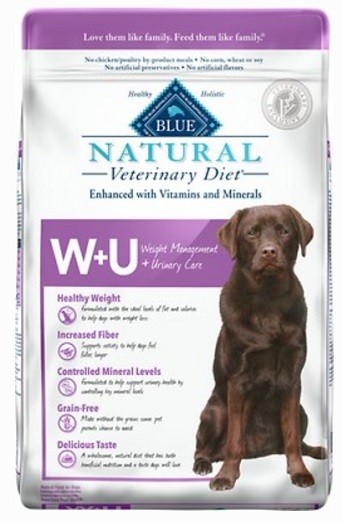
The Best Dry Dog Food for Bladder Stones
The first thing we should note is that while Blue Buffalo do now offer some formulas that are what is known as 'vet exclusive' - in that they are often sold via a vet's office - and while you can purchase this from pet food outlets online you will need veterinary authorization/prescription to do so.
The formulas were created with the assistance of veterinary professionals and contains high quality ingredients with adding any of the grains that many pups are particularly sensitive to.
BLUE Natural Veterinary Diet KS Kidney Support or BLUE Natural Veterinary Diet Weight Management + Urinary Care formulas are great choices as they offer just the right levels of protein as well as controlled levels of phosphorus and sodium to help support kidney health and less sodium (to prevent dehydration.)
The weight management formula also contains more fibrous veggies to help dogs feel fuller longer. The weight management formula has been found in a number of studies to be one of the most effective available when fed in the proper quantities.
- Pros: Formulas designed for canine urinary health, created with vet assistance and recommended by many vets as a long term solution after a course of a more intensive prescription diet for bladder stones is completed.
- Cons: A more expensive choice that requires a prescription. Some pet parents report that their pups seem to dislike the taste (however this is often the case with lower fat and sodium formulas).
5. Blue Buffalo Natural Veterinary Diet W+U Grain-Free Canned Dog Food
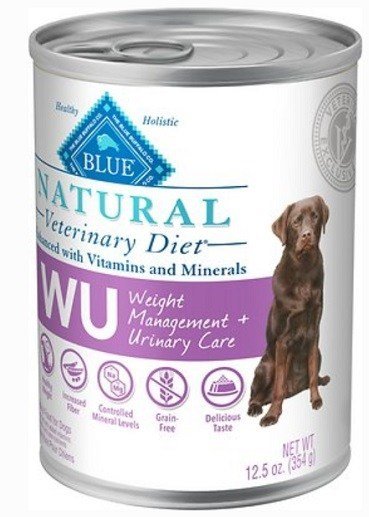
The Best Wet Dog Food for Bladder Stones
Some pups just love a little wet food to go with their dry kibble, and for a dog prone to bladder stones the extra moisture in their diet can be a big help too. Add to this the fact that this Blue Buffalo formula is especially designed to protect urinary health and you may be on to a winner. This food can be purchased online, but you will need to provide a vet's authorization to do so.
Like the Veterinary Diet kibbles Blue Buffalo offer, this wet food formula was created with heavy input from vets and is often recommended as a longer term solution after a course of a more intensive therapeutic diet to address bladder stones has been completed to help prevent a recurrence.
This is a grain free food that is low in sodium and contains controlled amounts of high quality protein. It is also a grain free formula, something that dogs with sensitive stomachs will benefit from. It's primary protein is chicken, which is a low fat meat that most dogs love, so in terms of taste that's a plus, as some low sodium foods can be rather bland.
- Pros: Specialized vet formula, grain-free (good for sensitive stomachs), high-quality protein in just the right amount.
- Cons: Cannot be purchased without a formal prescription.
6. Hill’s Prescription Diet C/D Multicare Urinary Care Chicken & Vegetable Stew
This is another wet food that is designed specifically to address urinary health in pups, including those prone to, or who have suffered from bladder stones in the past. Like other therapeutic dog foods it can be purchased from online pet stores, but only with a valid prescription or vet authorization.
This wet food is presented in a 'stew' form that's easy for dogs of all sizes to digest (especially senior pups whose teeth may not be in greatest shape) The main source of protein is chicken, but it is included, along with rice and vegetables, at a measured level that is not too high or too low. The formula is also a low sodium one and contains less magnesium, calcium, and phosphorus than standard dog food formulas.
This is a dog food that pet parents report they were surprised to find their pups enjoyed, despite the lower fat and sodium content, something that is a plus when trying to get a picky pup to eat the food that's best for him.
- Pros: Stew-like texture that's easy to digest, high quality protein in just the right amount. Low in sodium and minerals that may cause urinary tract issues.
- Cons: Can only be purchased with a vet's prescription. A more expensive choice than standard wet food.
7. Royal Canin Veterinary Diet Urinary SO Gravy Canned Dog Food
Royal Canin is a very well-known name in the dog food industry, especially when it comes to therapeutic pet food. This formula is one that is prescribed by vets to treat pups who have suffered with bladder stones with the intention of normalizing their urinary functions and possibly preventing new stones from forming.
This wet food is offered in 'slice form', something some dogs love and that is relatively easy for most pups to digest. The primary protein is an organically sourced chicken with pork meal to supplement it.
The formula is also a lower calorie, lower sodium one that has been shown to be able to help dissolve small struvite and calcium oxalate crystals to prevent them from becoming bladder stones.
- Pros: Pleasing slice style presentation. Can actively dissolve struvite and calcium oxalate crystals. Lower in fat, calories and sodium.
- Cons: For adult dogs only. Only available for purchase with a prescription from your vet. Some pet parents report difficulty in getting picky pups to eat this.
8. ProPlan Veterinary Diets UR Urinary Ox/St Canned Food
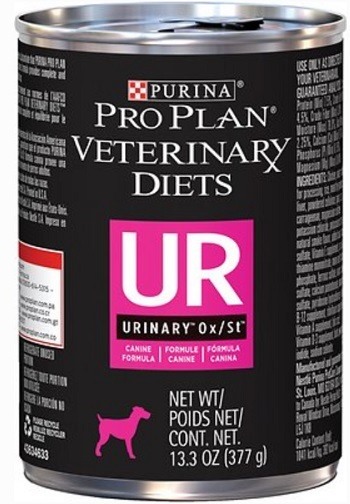
This is another prescription only wet dog food designed to promote urinary health, dissolve potentially harmful struvite and calcium oxalate crystals and add extra moisture into a bladder stone prone pup's diet.
The primary protein in this solid style wet dog food is a high quality chicken which is supplemented by chicken liver, and offers a very high quality protein source. It is also supplemented with a number of vitamins to help ensure the overall health and function of your pup's body, especially his immune system.
- Pros: Has found to be excellent for dissolving struvite crystals. Vitamin enhanced for an immune system boost. Offers a very high quality protein.
- Cons: Available via prescription only.
9. Halo Holistic Turkey & Salmon Stew
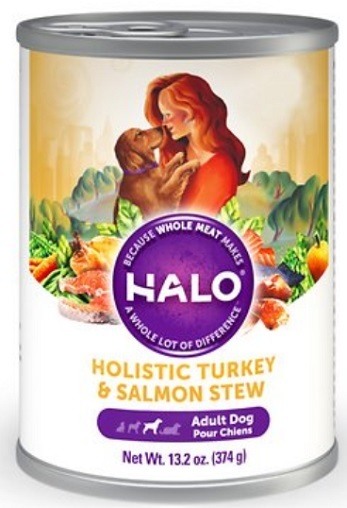
Best Holistic Canned Food for Bladder Stones
Returning to the non-prescription options available to pet parents concerned about bladder stones Halo, a well-known name in the dog food industry for many years, offers a wet food formula that is available in a range of flavors and formulas for puppies, adult and senior pups that is made using the highest quality proteins and contains no artificial ingredients.
For dogs prone to bladder stones a lower level of sodium will be beneficial, as will the quality of the proteins, which include beef, chicken, turkey and salmon. The formulas are supplemented with organically sourced fruits and vegetables that are designed to add both valuable nutritional benefits and taste.
- Pros: All natural ingredients. Lower fat and sodium content than many dog foods. Supplemented with vitamins to boost immune health.
- Cons: More expensive than some other standard wet foods.
10. Sojos Complete Natural Freeze-Dried Natural Raw & Dehydrated Grain-Free Dog Food
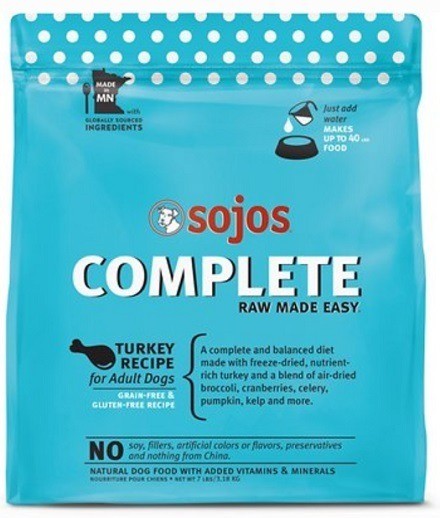
Best Raw Dog Food for Bladder Stones in Dogs
Raw dog food is something that has been making headlines recently, but many pet parents are still unsure about what it really is and what it might be able to do for their pup's health, especially one prone to bladder stones.
Sojos Complete is a freeze dried raw dog food that is reconstituted before feeding with water.
This is considered to be a safer way to feed raw dog food than simply offering raw meat as it cuts down on the risk of bacteria like salmonella becoming a problem for both pups and pet parents
The lack of artificial ingredients and a lower sodium level may be beneficial for dogs prone to bladder stones and the 'real meat' taste is one that pet parents report seems to appeal to their dogs despite the lower sodium level. Proteins on offer include lean beef, chicken and lamb, all of which are excellent, lower fat choices.
- Pros: Offers the chance to feed pups a raw food diet more easily, lower sodium levels, high-quality lean proteins.
- Cons: Harder and more time consuming to prepare than many dog foods. Any leftovers need to be disposed of quickly.
Diet and Canine Bladder Stones FAQs
These are just some of the dog food formulas available that can be beneficial for dogs prone to bladder stones.
There are other choices and we do know that pet parents often have questions both about bladder stones in dogs in general and the best ways to use diet to help prevent them and keep their pup as healthy as possible.
Here is a look at some of the most frequently asked of those questions:
What foods can cause bladder stones in dogs?
No one food has been proven to actively cause bladder stones in dogs, but it is well documented and agreed upon in the veterinary medical community that certain foods do indeed contribute to the problem.
Food that is very high in protein can be a problem. While every dog needs a certain amount of protein to be healthy too much can lead to excessive protein deposits in the urine which in turn can be a catalyst for the formation of bladder stones.
High fat dog foods have also been found to be a possible contributing factor, so a lower fat diet is recommended instead. In addition, high levels of sodium should be avoided, which means that all table scraps should be off the 'menu' for your pup and their dog food should be a lower sodium choice.
How do you get rid of bladder stones in dogs?
Bladder stones in dogs are treated in several different ways. In some cases the surgical removal of larger bladder stones is the fastest way to relieve pain and get rid of them, but for older dogs and puppies, or those with respiratory problems, this may not be an option.
Some stones can be dissolved using radiofrequency ablation, a specialist procedure performed by a veterinary radiologist or by urohydropropulsion, a treatment that 'flushes' the stones from the dog’s body.
In many cases, when the stones are smaller they can be treated with a specialist prescription therapeutic dog food, like some of the options we have covered here.
How to prevent bladders stones in dogs?
Some factors are out of your control when it comes to preventing bladder stones in dogs, and specifically your pup.
Some, as we have mentioned, are genetically predisposed to them, which is not something you can change. Also, as previously mentioned, just why some types of bladder stone form is still something of a mystery even to vets and scientists.
However there are some measures you can take to help prevent your puppy from being put through the pain and discomfort of dealing with bladder stones, including all the following:
- Make sure they are always well hydrated: It is known that dehydration plays a significant role in the formation of some bladder stones, so ensuring your pup is well hydrated at all times is a must (and it's a must for his general health anyway). Make sure he always has access to clean water and don't let him stay out in the sun too long, or eat very salty human foods that will dehydrate him.
- Choose food carefully: According to researchers there are links between canine obesity and an increase in bladder stone risk and a link between high carb, high fat foods and bladder stone formation. Dogs only need to follow a therapeutic stone diet when they are recovering from bladder stones, but by choosing a lower fat, lower sodium dog food with a sensible amount of protein and as few artificial ingredients as possible you may go a long way towards helping keep bladder stones at bay.
- Purchase urine pH strips and test. Check the urinary pH weekly for the first 3 months, then at least monthly thereafter. Typically healthy dogs have urine pH between 6-7 but can vary.
- If urine pH is consistently alkaline (2 or 3 consecutive readings over 7), see your vet for a full urinalysis and recommendations or add a bladder health supplement such as Uromaxx or Vetriscience UT Strength STAT to acidify the urine, Dr. Lorelei Wakefield, DVM says.
Are there any guidelines for the best homemade diet for dogs with bladder stones?
Because therapeutic foods for bladder stones in dogs are expensive, and call for a prescription some pet owners wonder if they can recreate a 'stone diet' at home (some pet parents also prefer to feed their pups homemade food in general)
On the Internet you will find lots of recipes for homemade dog foods that will claim to be effective when a pup has bladder stones. Some of these are potentially okay as they are low carb, low sodium options made with fresh ingredients.
Some are not so good, as they come from less than reputable sources and rely on inaccurate information. Some may be fine to try, but home remedies and recipes should not be used instead of a visit to the vet.
Although they often resolve well in the end, bladder stones in dogs can be life threatening and cause long term organ damage if not treated, so any time you suspect your pup may have a bladder stone problem a trip to the vet should be your first move.
***
We hope you have found this guide helpful and that you now know more about bladder stones in dogs and the role that food can play in preventing and treating them.
Hopefully your pup will never have to deal with bladder stones, but if he does, a well informed pet parent is going to be a big help!

